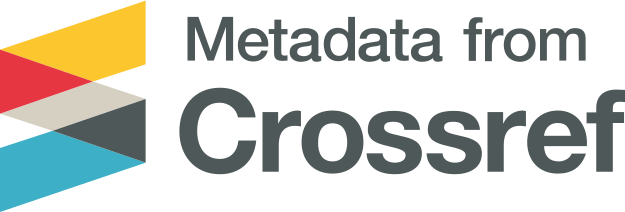Evaluasi Tax Control Framework Perusahaan Dagang dalam Menghadapi UU HPP
DOI:
https://doi.org/10.35838/jrap.2023.010.02.18Keywords:
Tax Control Framework, Tax Regulations, Trading CompanyAbstract
Clear and structured tax regulations are very important in a country's economic system, but they can change along with developments over time and economic policies. This change can be caused by the increasing complexity of tax regulations, which can trigger non-compliance and tax avoidance that is detrimental to the country. This research aims to evaluate the readiness of trading companies, especially PT. H, in facing the harmonization of tax regulations and to determine the impact. PT. H as a trading company was chosen because trading companies have a simpler financial structure compared to manufacturing companies and service companies. This makes it a good case study for understanding the impact of tax law changes without too many other complex factors involved. This research uses the Tax Control Framework indicators from the OECD, which include tax strategy, control, division of tasks, documentation of the tax implementation process, and monitoring of tax implementation. The evaluation results show that PT. H has taken strategic steps such as monitoring regulations, partnering with tax consultants, and implementing strict controls to ensure the accuracy of tax reporting. They also carry out focused division of tasks, detailed documentation, and regular internal monitoring and audits. Despite facing several challenges such as understanding complex regulations and lack of government outreach, PT. H remains committed to maintaining tax compliance and optimal company performance.
Downloads
References
Alfaruqi, H. A., Sugiharti, D. K., & Cahyadini, A. (2019). Peran Pemerintah Dalam Mencegah Tindakan Penghindaran Pajak Sebagai Aktualisasi Penyelenggaraan Pemerintahan Yang Baik Dalam Bidang Perpajakan. ACTA DIURNAL Jurnal Ilmu Hukum Kenotariatan, 3(1), 113-133. https://doi.org/10.24198/acta.v3i1.371
Ardianingsih, A. (2018). Audit Laporan Keuangan. Bumi Aksara.
Berutu, M. I. A., & Kuntadi, C. (2023). Pengaruh Jumlah Penduduk, Tingkat Inflasi dan Pertumbuhan Ekonomi Terhadap Penerimaan Pajak Daerah. Innovative: Journal Of Social Science Research, 3(4), 4751-4758. https://doi.org/10.31004/innovative.v3i4.3552
Ellet, W. (2007). The Case Study Handbook How To Read Discuss And Write Persuasively Cases. Harvard Business School Press
Guamaradewi, N. G., & Gunadi, W. L. (2018). Dampak Kesiapan Individu dan Kesiapan Organisasi untuk Berubah bagi Komitmen Afektif untuk Berubah. Jurnal Manajemen Aset Infrastruktur dan Fasilitas, 2(2), 57-68.
Hanifa, V. D., & Rosdiana, H. (2023). Evaluasi Kebijakan Pajak Penghasilan atas Pembayaran Bunga Pinjaman pada Transaksi Peer To Peer Lending Berdasarkan Prinsip Good Tax Policy. Syntax Idea, 5(9), 1179-1193. https://doi.org/10.46799/syntax-idea.v5i7.2416
Hutagaol, Y. R. T., Sinurat, R. P. P., & Shalahuddin, S. M. (2022). Strategi Penguatan Keuangan Negara Dalam Menghadapi Ancaman Resesi Global 2023 Melalui Green Economy. Jurnal Pajak Dan Keuangan Negara (PKN), 4(1), 378-385. https://doi.org/10.31092/jpkn.v4i1S.1911
Lestari, U. P., & Darmawan, D. (2023). Upaya Mewujudkan Kepatuhan Wajib Pajak yang Lebih Baik: Peran Pengetahuan Perpajakan dan Lokus Kendali Internal. Jurnal Simki Economic, 6(1), 303-315. https://doi.org/10.29407/jse.v6i1.387
Nurillah, T. E., & Andini, I. Y. (2022). Impact of the HPP Law (Harmonization of Tax Regulations) PostPP 23 on MSMEs during the Covid-19 Pandemic. Jurnal Multidisiplin Madani, 2(7), 3195-3216. https://doi.org/10.55927/mudima.v2i7.767
OECD. (2016). PISA 2015 Result in Focus. OECD Publishing.
Peters, W. T. B., van den Brink, M. R., de Roest, G. A., & Janssen, S. (2011). Establishing a Tax Control Framework: The utility and necessity of IT. Compact-Kwartaalblad EDP Auditin.
Putri, D. A., & Najicha, F. U. (2021). Reformasi Perpajakan di Indonesia. Jurnal Hukum POSITUM, 6(2), 168-178.
Rahayu, P. A., Ratna Putri, M. P., Felisia, F., & Faninda, S. (2022). Strategi Bisnis, Pemanfaatan Insentif Pajak, dan Kepatuhan Wajib Pajak Perusahaan Event Organizer Selama Masa Pandemi Covid 19. Jurnal Riset Akuntansi & Perpajakan (JRAP), 9(2), 261-272. https://doi.org/10.35838/jrap.2022.009.02.22
Ramadhani, T. A., & Fauzi, A. M. (2020). Respon Masyarakat Surabaya terhadap Diputuskannya RUU Cipta Kerja Oleh Pemerintah. Legalitas: Jurnal Hukum, 12(2), 221-225. https://doi.org/10.33087/legalitas.v12i2.209
Randa, Afifudin, & Hariri. (2021). Pengaruh Insentif Pajak Dan Cash Flow Terhadap Konservatisme Akuntansi Pada Perusahaan Manufaktur Yang Terdaftar Di BEI Tahun 2017-2019. e Jurnal Ilmiah Riset Akuntansi, 10(1), 43-56.
Ridder, M. d. (2016). Managing tax Balancing current challenge with future promise. Deloitte.
Rijali, A. (2018). Analisis Data Kualitatif. Alhadharah: Jurnal Ilmu Dakwah, 17(33), 81-95. https://doi.org/10.18592/alhadharah.v17i33.2374
Rizki, V. L., & Sulistyan, R. B. (2022). Manajemen Sumber Daya Manusia. Widya Gama Press.
Sinaga, H. D. P., & Hermawan, A. W. (2021). Tax Reorientation As Corruption Prevention On Investment In Indonesia. Journal Accounting and Finance, 5(1), 21-30. https://doi.org/10.25124/jaf.v5i1.3746
Siringoringo, Y., & Irawan, B. (2023). Analisis Kepatuhan Pelaksanaan Kewajiban Perpajakan Dalam Perdagangan Usaha Hasil Pertanian Pada PT Indogala Murni Pratama. Jurnal Ilmu Administrasi Publik, 3(3), 329-337. https://doi.org/10.31334/jiap.v3i3.3166.g1517
Sopanah, A., Fatoni, I., Danawanti, M. O., Harmadji, D. E., Mulia, E., Puspitosarie, E., Sari, Y. P., Zamzami, F., Faiz, I. A., Huda, I., Setiawan, A. R., Ulfah, A. K., & Arifin, J. (2020). Bunga Rampai Akuntansi Publik: Isu Kontemporer Akuntansi Publik. Scopindo Media Pustaka.
Sopanah, A., & Harnovinsah. (2023). Perencanaan Pembangunan Daerah Teori Dan Implementasi. Scopindo Media Pustaka.
Sopanah, A., Hasan, K., Putra, S. K., & Rusdianti, I. S. (2023). Akuntabilitas publik organisasi nirlaba. Scopindo Media Pustaka.
Zakaria, E. (2023). Penerapan Omnibus Law Dalam Sistem Legislasi Nasional Menurut Undang-Undang Nomor 13 Tahun 2022. Innovative: Journal Of Social Science Research 3(3), 10719–17033. https://doi.org/10.31004/innovative.v3i3.2490
Zhang, G., Cheng, P., Sun, H., Shi, Y., Zhang, G., & Kadiane, A. (2021). Carbon reduction decisions under progressive carbon tax regulations: A new dual-channel supply chain network equilibrium model. Sustainable Production and Consumption, 27, 1077-1092. https://doi.org/10.1016/j.spc.2021.02.029
Downloads
Published
Issue
Section
License
Authors who publish with this journal agree to the following terms:
- Authors retain copyright and grant the journal right of first publication with the work simultaneously licensed under a Creative Commons Attribution-ShareAlike 4.0 International License that allows others to share the work with an acknowledgement of the works authorship and initial publication in this journal.
- Authors are able to enter into separate, additional contractual arrangements for the non-exclusive distribution of the journals published version of the work (e.g., post it to an institutional repository or publish it in a book), with an acknowledgement of its initial publication in this journal.
- Authors are permitted and encouraged to post their work online (e.g., in institutional repositories or on their website) prior to and during the submission process, as it can lead to productive exchanges, as well as earlier and greater citation of published work (See The Effect of Open Access).














